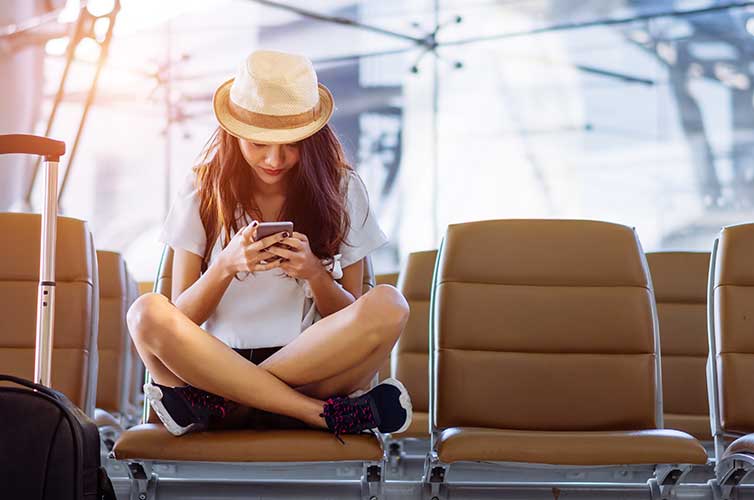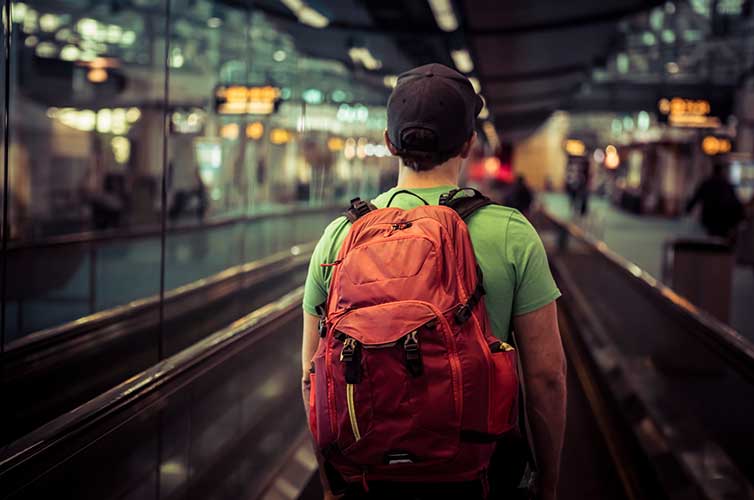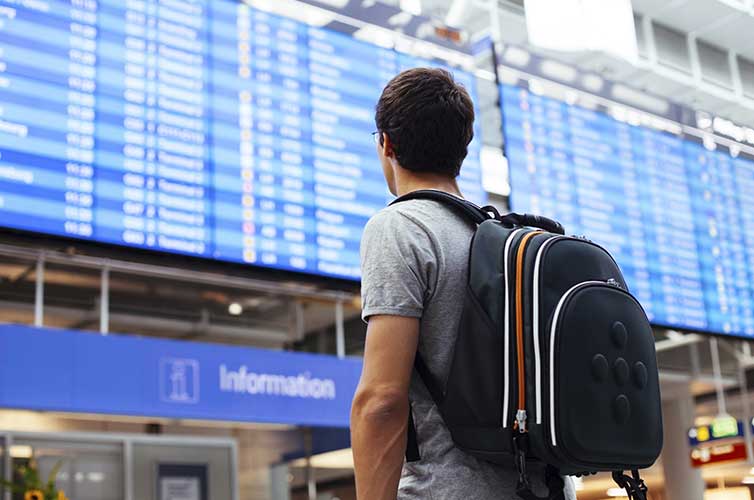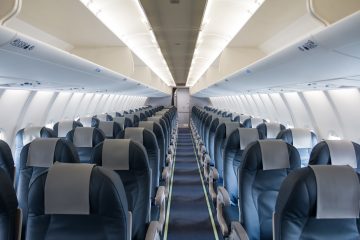For most people, traveling is an awesome way to experience new cultures and get out of their comfort zone. However, for people with severe allergies, getting out of your comfort zone can be a little less adventurous and a lot more dangerous. That doesn’t mean your allergies have to stop you from seeing the world, though! With a little preparation and some precautions while you travel, you can travel safely with allergies.
Before you go
Check out the policies of the airline.
Each airline has different policies regarding allergies. Although of course no airline can guarantee a completely allergen-free flight, many airlines are taking steps to making flying safer for all passengers. For example, American, United and Southwest don’t serve peanuts at all on their flights. Many other airlines (like Delta, for example) will avoid serving peanuts on flights if they know a passenger has a severe allergy. Read up on airline policies on allergies before booking your flight to see which airline will be best for you.

Contact the airline you’ll be flying.
Many airlines are happy to help make accommodations for you to travel safely with allergies if you call at least 24 hours in advance of your flight. Although, again, no airline can guarantee your flight will be completely allergy-free, they should be able to let you know what food will be served on that flight and what accommodations they’ll be able to provide for you.
Collect medical records/doctor’s notes about your allergies.
If your allergy is especially severe, you may want to consult with your doctor before flying. Your doctor can make sure you have all the medications necessary in the event of an emergency, provide you with information and precautions and write a doctor’s note regarding your allergies and the severity of them in case you need it.
Think about purchasing travel insurance.
If you haven’t gotten travel insurance for your trip yet, we recommend travelers with allergies purchase trip insurance. It’ll help protect you—and the money you’ve spent on your trip—in case things go wrong. You can purchase trip insurance from us when you book your flights, or purchase through a stand-alone travel insurance company. Just be sure to read the fine print and know what your plan will and won’t cover.
Consider booking an early-morning flight.
Because many airlines have their planes cleaned at the end of the day, an early-morning flight will decrease the chances that your seat will have food residues or oils that could cause a reaction.

As you travel
Always, always, always carry your epi-pen (and any other needed medications) with you in your carry-on.
Repeat after us: I will never pack important medications in my checked baggage. It seems like a no-brainer, but it’s easy to forget and just put things somewhere that you later realize you won’t have access to them. On that note, make sure your epi-pen isn’t in a bag placed in the overhead bin space either—keep in on you or in the bag pushed under the seat in front of you so you have it no matter what.

Ask about pre-boarding.
Many airlines will let you board early if you need extra assistance or time boarding. Contact the airline in advance and let them know of your food allergy to ask if you can have some extra time to board. Then wipe down your seat, armrests, tray table, etc. before you settle into your seat.
Keep a doctor’s note with you.
Airline personnel or staff may ask to see a doctor’s note to help accommodate for your allergies. Although hopefully you shouldn’t need one, having it on hand can be helpful in case anything goes awry.
Ask passengers nearby to help keep the space safe for you.
If you’re severely allergic, it’s totally okay to let the people around you on the plane know and ask them if they’d be willing to refrain from eating nuts or whatever it is you’re allergic to.
Bring your own food.
This may go without saying, but it may be difficult to find foods you know are safe with sometimes-limited airport options. Bring your own snacks and meals. That way, you won’t be tempted to buy or eat something you’re not sure is safe.

Know who to call if something goes wrong.
If you’re traveling abroad, it’s important that you have a plan in place in case you have an allergic reaction and know who to call. Keep emergency contact information of your own doctor as well as an in-country emergency number handy. It can also help to carry a card that explains the things you are allergic to in the local language.
Ready to book your flight? We partner with 90+ airlines so you can be sure to find one that will help you travel safely with allergies.


